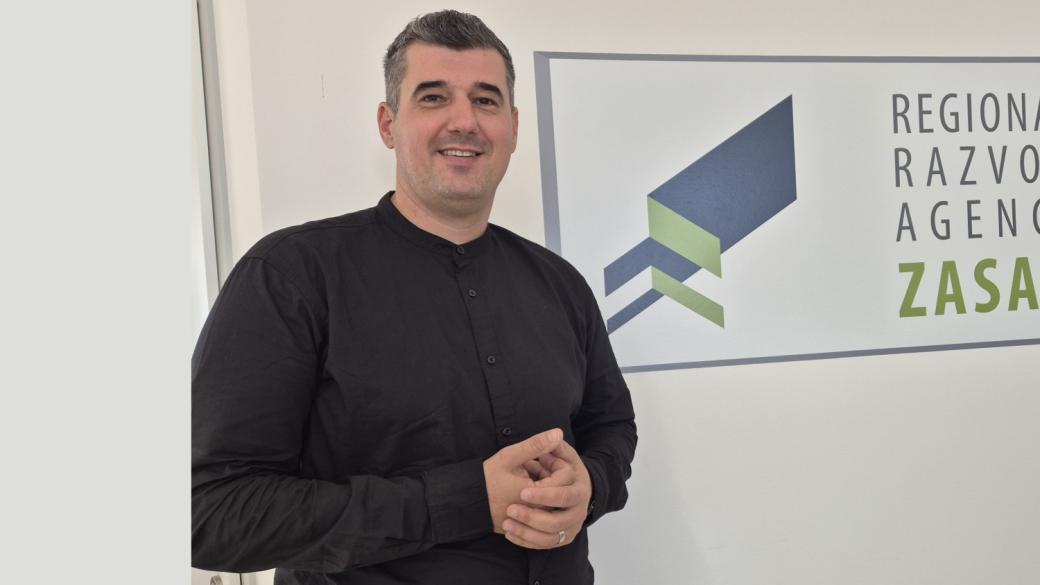School for entrepreneurs: how Zasavje fosters SME business culture on the ground
The PVSP and PONI programs have been internationally recognized as forward-thinking practices

© ECONOMIC.BG / Economic.bg
These days, the Zasavje region in Slovenia doesn’t have a problem with high unemployment, but that wasn’t the case a decade or two ago when the main economic life source in the area – coal mining – was busy shutting down. Left and right people were being left without a livelihood and the unemployment rate shot over 25% and they were faced with two options: start your own business or start commuting to the capital Ljubljana daily where jobs are more available. Most people picked the second option.
This turn of events is hardly surprising. After all, starting a business requires some capital, know-how and a healthy dose of courage. It may also require a certain milieu where entrepreneurship is part of the mainstream culture.
Our region has no long tradition of entrepreneurship. If it had not been for the first idea of a systemic entrepreneurship development in the PVSP pilot project that started to take shape in 2010/11, the region would not have such an entrepreneurial culture that it has today,” explains Jernej Lipar, technical assistant at the Regional Development Agency of Zasavje.
Mr Lipar brings up an interesting point. Is it possible to cultivate business attitudes in places where they were not prevalent? This is a very pertinent question for present and former coal-mining and industrial regions where the majority of the workforce had traditionally been employed in blue-collar occupations.
And while, the PVSP program (co-financed by the European Social Fund) and its ‘sequel’ PONI, (co-funded through the European Regional Development Fund, to the tune of 1.3 million euros for the period 2023-2028) have been available on the entire territory of Slovenia, it is precisely economically struggling regions, such as Zasavje, that can see a particularly strong benefit from their implementation.
The initial PVSP project, which took place between 2011-2015, involved 610 participants from all of Slovenia and led to the creation of 220 new companies and 260 new jobs as a result. That initial initiative, however, had certain limitations, such as an age requirement.
What makes the PONI program unique?
The Regional Development Agency of Zasavje (RRA Zasavje) oversees the PONI initiative, which is open to any resident with the only condition that if they want to enroll in it, they must have a business idea that they would like to develop. PONI is an acronym for Entrepreneurship Over Challenges in Slovenian.
Unlike conventional entrepreneurship programs, PONI employs participants for four months, allowing them to immerse themselves in a structured entrepreneurial journey. They also get paid the minimum Slovenian salary during the four-month duration taking away concerns for bill payments so the students can concentrate on fulfilling their dream.
The program focuses on 21 core topics, covering essential skills such as market analysis, marketing, financial management, legal compliance, and recruitment. Additionally, the program supports business ideas aligned with regional demands, such as local services, eco-friendly products, and emerging technologies like 3D printing.
Participants are encouraged to innovate while being guided by a team of experienced mentors and industry experts. Notably, some past participants of PVSP have returned as mentors, creating a sustainable cycle of knowledge transfer and community building.
Success stories
The impact of PONI extends beyond the creation of businesses. By addressing regional skill gaps and encouraging collaboration among stakeholders—government agencies, educational institutions, and private entities—the program fosters a supportive entrepreneurial ecosystem. Its inclusivity ensures that individuals of all backgrounds, regardless of age, gender, or financial status, can participate, provided they have a feasible business idea.
Success stories from the initiative include diverse ventures, from eco-packaging solutions and artisanal crafts to service-oriented businesses like wellness centers and niche manufacturing. One notable example is the KUOLMi jewelry line, which integrates actual coal pieces into its designs, blending the region's industrial heritage with modern artistry.
Implanting resilience
In terms of numbers, Jerne Lipar says: ‘So far, within the framework of the PONI project, we have held 2 groups of 10 participants each. The third group with 11 participants has just started.’ Overall, the program has a budget for 106 participants until its end with the goal of having at least 30% of the business projects survive a minimum of 12 months. It is after that deadline that their survivability chances greatly increase. Participants are monitored until the end of the implementation of the PONI Zasavje project (end of 2028).
By fostering a culture of entrepreneurship, PONI Zasavje is not only addressing current challenges but is also paving the way for a resilient and self-reliant regional economy that could be better prepared for future shocks. The old cliché of teaching a man to fish rather than handing him fish fits in ideally in this context. As the region is preparing to develop along circular and sustainable principles, future entrepreneurs need to take these matters into account as well.
The PVSP and PONI programs have also received recognition from abroad already. The program has been ranked among the top 100 projects in the EU by the European Commission's Social Innovation Research Unit and representatives from Spanish coal regions have visited Zasavje with the aim of replicating its success in their homeland.
The PVSP/PONI program represents a beacon of hope for regions exiting coal because it dares to implement a much-needed way of approaching the employment side of the just transition conundrum. Directly supporting the growth of a home-grown small entrepreneurial class can certainly make the career dilemma facing residents of transitioning regions article a truly viable and balanced one. Trying out one’s hand at crafting one’s own business is now not an intimidating choice to make in Zasavje.
Co-Funded by the European Union. Views and opinions expressed are however those of the author(s) only and do not necessarily reflect those of the European Union. The European Union cannot be held responsible for them.


 Tzvetozar Vincent Iolov
Tzvetozar Vincent Iolov